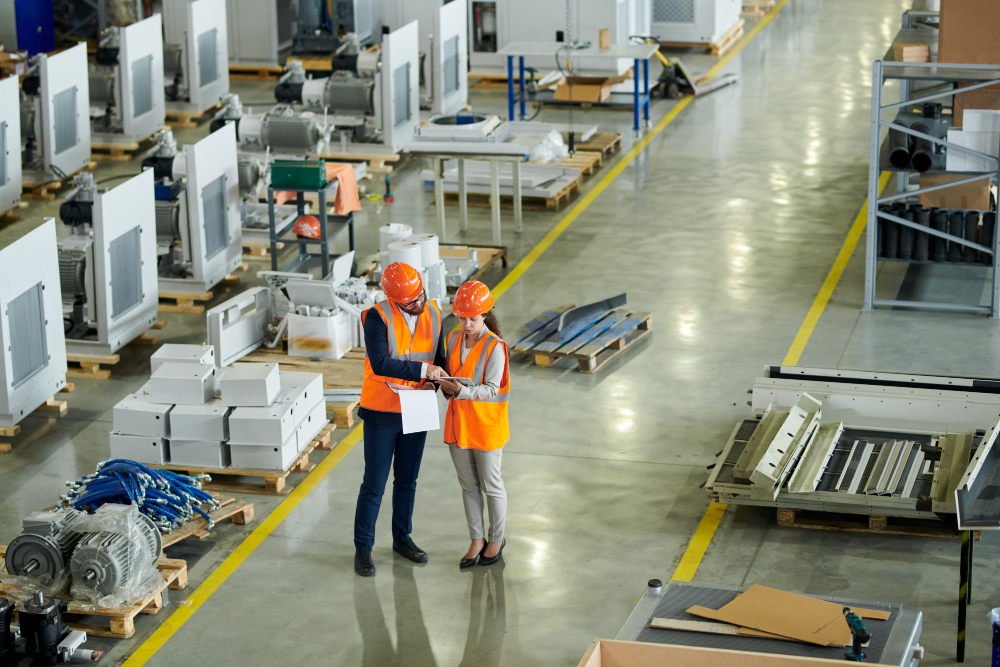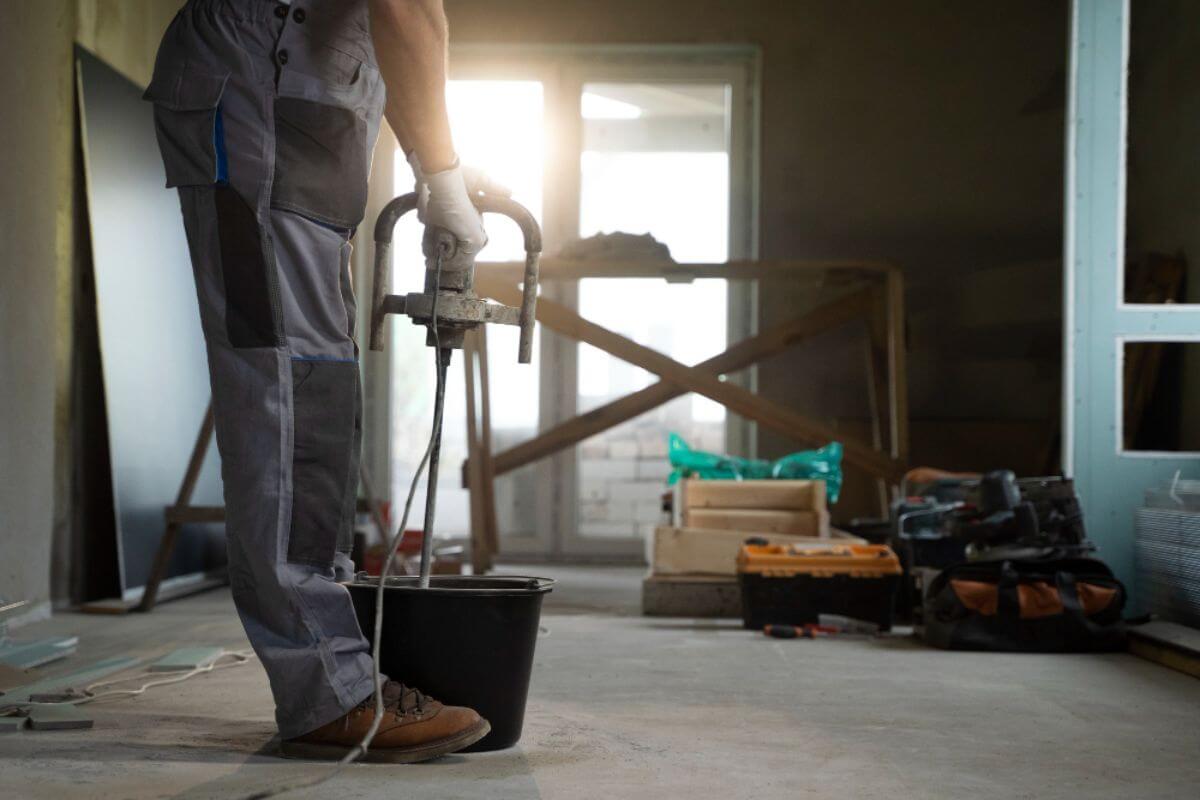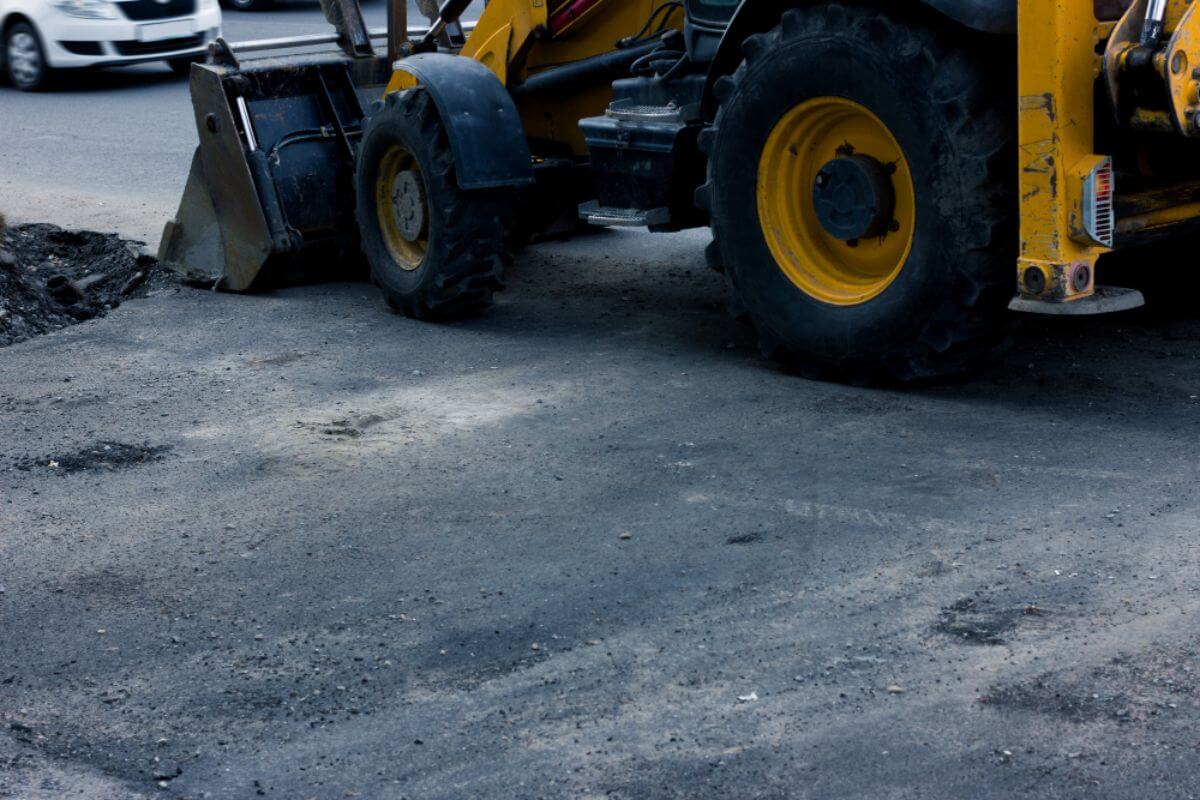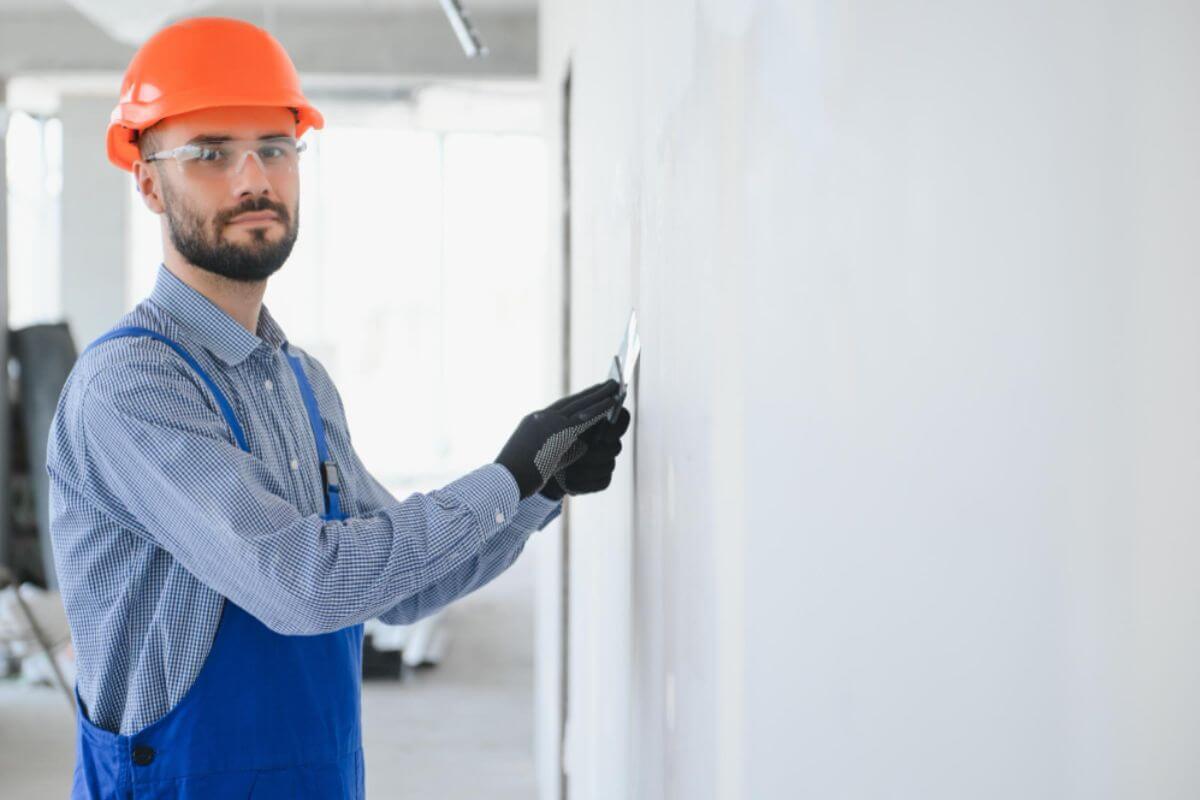The Role of Flooring in Industrial Kitchens
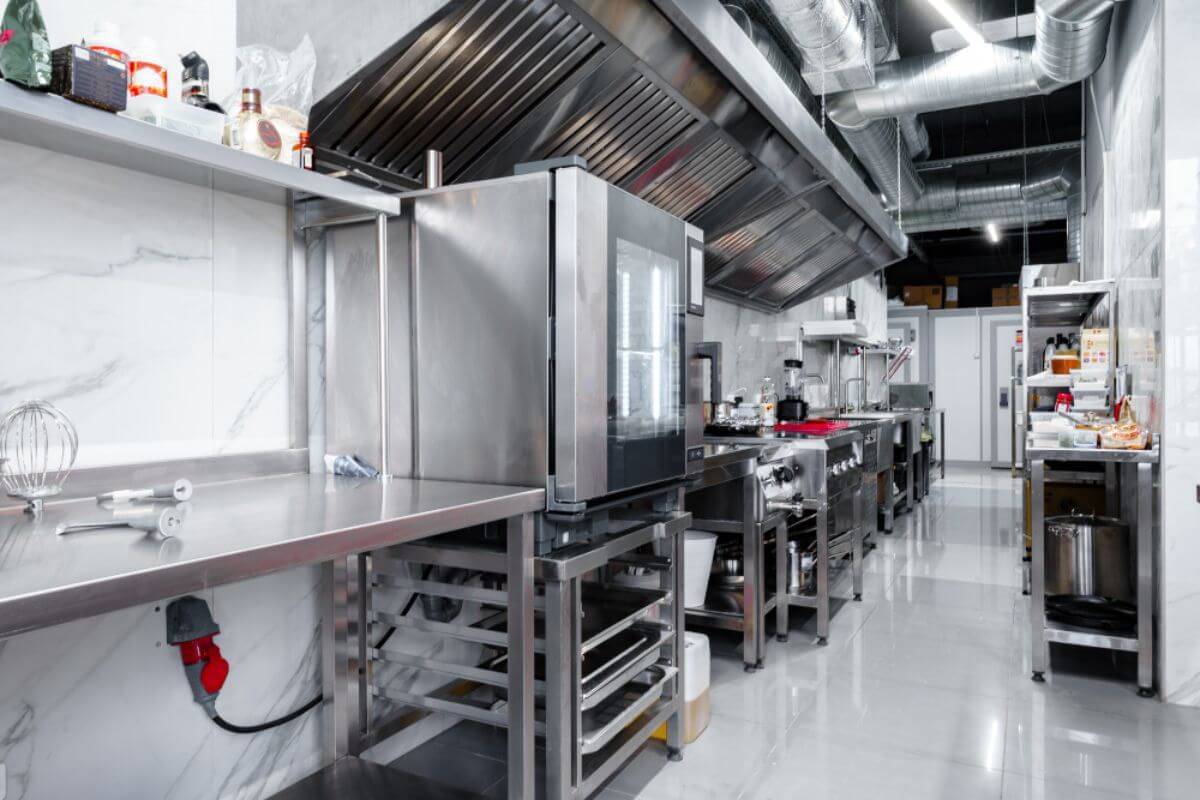
What is the role of flooring in industrial kitchens?
- Ensures kitchen safety
- Maintains hygiene and easy-to-clean floors
- Handles extreme temperatures
- Resists chemicals and stains
- Balances function and aesthetics
- Reduces noise in the kitchen
Overview
- Industrial kitchens are crucial for various establishments, including restaurants and food processing plants.
- Slip-resistant and hygienic flooring, withstanding extreme temperatures, resisting chemicals, balancing function and aesthetics, and reducing noise are essential considerations.
Industrial kitchens are the beating heart of many establishments. From restaurants to food processing plants, they are bustling hubs of activity where culinary magic happens daily.
However, beneath the hustle and bustle lies a critical component that often goes unnoticed but plays an essential role in ensuring the smooth functioning of these kitchens – the flooring. Since it must endure heat, chemical exposure, and stains while also retaining slip resistance and ease of maintenance, kitchen flooring selection is critical.
In this blog post, we will explore the essential role of flooring in industrial kitchens and why it matters more than you might think.
Ensures Kitchen Safety

In a high-pressure environment where chefs and kitchen staff are constantly on the move, a slip or fall can lead to serious injuries. Thus, safety is critical in any industrial kitchen. The flooring in these kitchens must be slip-resistant to prevent accidents caused by spills or greasy surfaces.
Industrial kitchen flooring materials like epoxy coatings provide the necessary traction to keep everyone safe. These materials make it safer for people to move around your commercial kitchen. When combined with appropriate industrial footwear, your employees can move confidently without the need for extreme caution.
Maintains Hygiene and Easy-to-Clean Floors
Keeping things incredibly clean is a must in the food industry. A study revealed that poor kitchen management could be a risk factor for E. coli, Salmonella, Campylobacter, or self-reported diarrhea. Therefore, the choice of flooring in industrial kitchens must be easy to clean and resistant to the accumulation of dirt, grease, and food particles.
Flooring materials such as stainless steel, quarry tiles, or epoxy resin are popular choices because they can withstand frequent cleaning with industrial-grade detergents and hot water, ensuring a sanitary environment.
Handles Extreme Temperatures
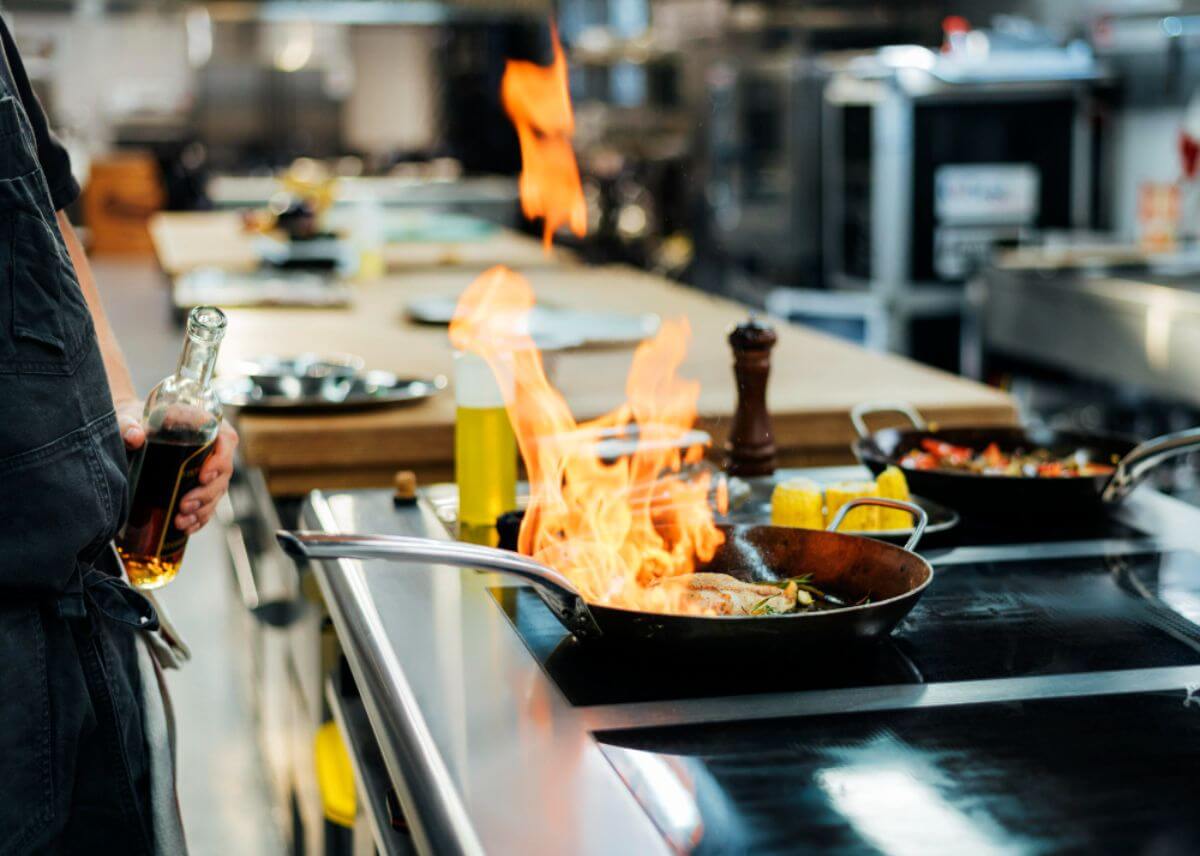
Industrial kitchens often face extreme temperature variations due to the cooking equipment and appliances in use. Flooring materials need to withstand these temperature fluctuations without cracking or deteriorating.
Materials like epoxy resin and polyurethane coatings excel in this regard, as they are highly heat-resistant and cold-resistant. They can handle the demands of a busy kitchen.
Resists Chemicals and Stains
In industrial kitchens, where chemicals and acidic substances are commonly employed for both cleaning and cooking, it’s imperative that the flooring can withstand these corrosive agents without any degradation.
Epoxy and vinyl flooring options, renowned for their exceptional resistance to chemicals and stains, emerge as the prime selections for such demanding environments.
These flooring materials have non-porous surfaces that keep liquids and chemicals from penetrating and causing unattractive stains. Their chemical resistance extends to common kitchen oils, grease, acids, and cleaning chemicals, ensuring protection against damage and discoloration.
Balances Function and Aesthetics
While functionality is a primary concern in industrial kitchens, aesthetics should not be overlooked. A well-designed kitchen space with visually appealing flooring can boost the morale of kitchen staff and create a positive impression on customers who have a view of the kitchen.
Modern flooring options offer a wide range of colors and patterns, allowing you to strike the right balance between function and aesthetics.
Reduces Noise in the Kitchen
The constant clattering of pots and pans, the sizzling of food on grills, and the bustling of kitchen staff can create a deafening noise in an industrial kitchen.
Industrial flooring materials, such as epoxy, are designed to absorb sound and dampen vibrations more efficiently than typical concrete floors according to research. This feature helps to reduce noise echoing within the kitchen, resulting in a more pleasant work atmosphere.
Moreover, the ability of this type of kitchen flooring to withstand wear and tear, combined with its ease of maintenance, assures that it will continue to contribute to noise reduction over time.
Key Takeaway
The role of flooring in industrial kitchens is not just a surface to walk on; it is a critical element that contributes to the overall efficiency, safety, and hygiene of the kitchen. Choosing the right flooring material is essential to meet the demanding requirements of an industrial kitchen while ensuring that it remains a functional and aesthetically pleasing space.
Whether you’re running a restaurant, a catering business, or a food processing plant, investing in the right flooring can make a significant difference in the success of your operation.
If you’re seeking top-notch flooring solutions in the Philippines, your search ends here! Flooring Solutions is your reliable partner for all your flooring needs. Contact us today to explore how we can fulfill your industrial kitchen requirements.
